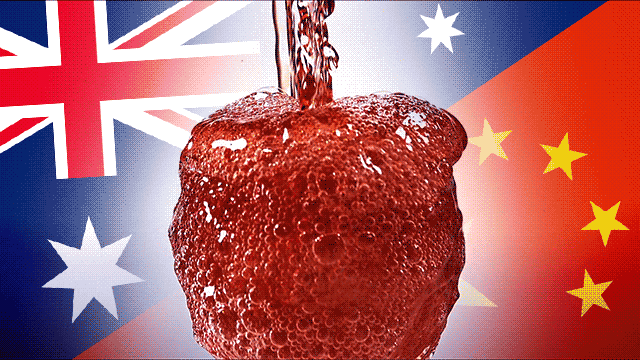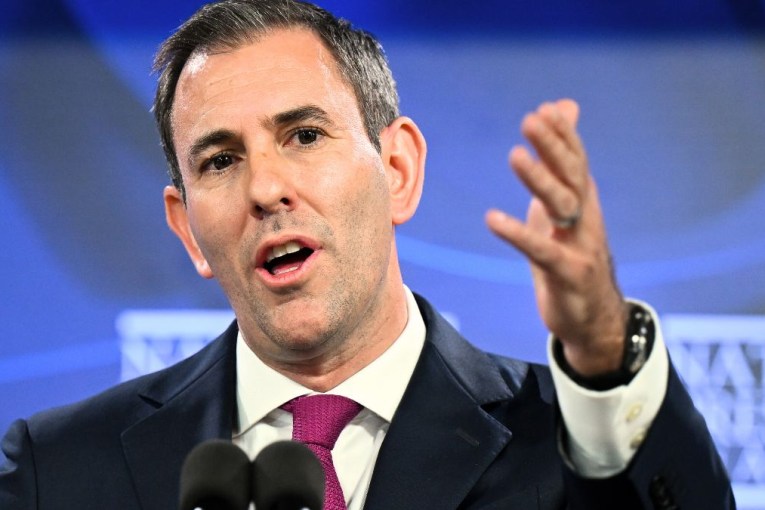Wine war: China’s sudden case of sour grapes threatens export industry

China has targeted a host of Australian exports for tariffs and extra rules, including wine. Photo: TND
It’s a geopolitical move designed to make a splash.
On Tuesday, China launched an investigation to determine if Australian exporters “dumped” bottles of plonk at deliberately low prices over a five-year period to crowd out local producers.
But even at a surface level, the claim appears to be in bad taste.
China imported about $1.1 billion worth of Australian wine between July 1, 2019, and June 30 this year – more than 40 per cent of our total exports, according to statutory authority Wine Australia.

The Australian wine exporter market has largely weathered the coronavirus pandemic. Graphic: Wine Australia
Chinese consumers have a penchant for Australian-grown varietals, with exporters capturing a 37 per cent market share, as compared with other powerhouses such as France (27 per cent), Chile (13 per cent ) and Italy (six per cent).
And how about the price? Is Australia just sending over the cheap stuff?
The total exports of cheap Australian wine – priced less than $5 a litre – fell by $221 million in the past 12 months while those at a higher price point ($10+) soared, with an extra $670 million worth sent to China.
So, if the numbers suggest exporters have been fairly pricing their wine, what prompted the extraordinary move by the Chinese government?
It’s not actually about Australian wine
Although details of the investigation remain scant, Australia-China Relations Institute director James Laurenceson said it appeared as though Beijing was punishing Australia for criticising the regime.

Penfolds’ Grange is one of Australia’s premium exports. Photo: Penfolds
The Chinese government has a long history of dressing up economic sanctions as apolitical technicalities, as this gives them plausible deniability if criticised for their actions.
“But that sort of loses its credibility once it starts to expand to more and more goods, and so this is just another example of another Australian good that is coming under fire,” Professor Laurenceson said.
“It’s still not black and white, but it is increasingly looking like China is trying to put on some coercive pressure.”
The move comes after repeated criticism from the Australian government over China’s actions in the South China Sea and its new national security law in Hong Kong – and follows embargoes on beef and higher tariffs on barley earlier this year.
The investigation is expected to be completed by August 18, 2021, but could be extended until February 18, 2022.
It’s complicated for Treasury Wine and other exporters
Immediately following the announcement of the investigation, Australia’s largest publicly listed wine exporter, Treasury Wine Estates, saw its share price plummeted nearly 15 per cent and was put in a trading halt.
Treasury Wine, which counts the iconic Penfolds brand as part of its portfolio, says it will co-operate with authorities and that the investigation will not impede its engagement with the Chinese market.

South Australian Premier Steven Marshall with Trade Minister Simon Birmingham at Penfolds’ cellar door. Photo: Getty
“As an importer of high-quality, premium Australian wine, including brands such as Penfolds, TWE remains committed to China as a priority market and will continue to invest in its Chinese business and its relationships with customers and consumers,” it said in a statement to the ASX.
It isn’t Treasury Wine’s first issue with the China market, having had to contend with counterfeiters repeatedly ripping off its Penfolds brand.
Last year, the company won more than $800,000 from a counterfeiter, as well as an apology, following court cases in Melbourne and Shanghai.
‘Completely unsubstantiated’
The National Farmers Federation led local criticism, with president Fiona Simson labelling the investigation “baffling and deeply concerning”.
“The Australian wine industry has spent many decades establishing a highly valuable relationship with China, built on a high-quality product and mutual respect,” Ms Simson said.
“Claims that Australian winemakers are selling wine into the Chinese marketplace at below-market price are completely unsubstantiated.
“As an industry, we must have confidence in the one-year investigation to be carried out by China’s Ministry of Commerce.”
South Australia is by far the biggest wine exporter to China by volume.
Almost 46 per cent of Queensland and Victorian exported wine goes to China. The figures are 41.5 per cent for WA and 43 per cent for SA.
What does the government have to say about it?
In a press conference on Tuesday afternoon, Trade Minister Simon Birmingham described the inquiry as “a very disappointing and perplexing development”.
“Australian wine is not sold at below-market prices and exports are not subsidised,” Senator Birmingham said.
“Australia will engage fully with the Chinese process to strongly argue the case that there are no grounds to uphold the claims being made.”
Agriculture Minister David Littleproud also flatly rejected the dumping allegations.
“Australia produces some of the best quality and most popular wine in the world,” Mr Littleproud said on Tuesday.
“That reputation has been recognised by Chinese consumers, who have helped make China our largest export market with $1.1 billion exported in 2019-20.”








